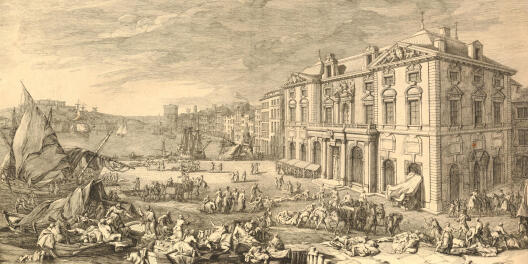Religion and conspiracy theories in the time of the corona epidemic
“Between Divine Punishment and Conspiracy Theories”

The Cluster of Excellence’s research on epidemics from antiquity to the present has been brought together in a volume entitled Between Divine Punishment and Conspiracy Theories. The volume deals with conspiracy theories and alternative theological interpretations that emerge in times of epidemics both past and present. “What disturbed liberal milieus convinced of the evidence provided by medical-scientific expertise in the Corona pandemic is not new for times of epidemics”, underline the volume’s editors, historians Marcel Bubert and André Krischer. “Competing interpretations of epidemics have emerged time and again”. The volume is the first to shed light on such competing interpretations in an interdisciplinary and trans-epochal way. Read more




